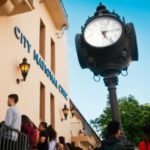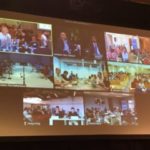
The cover story in the May issue of Convene had it relatively easy, exploring the ways that destinations measure the value of a meeting, in terms of both its tangible economic impact and its less tangible effect on a city’s reputation. But Business Events Sydney (BESydney) wanted to go much broader and potentially much less tangible than that, commissioning a comprehensive study of a meeting’s “social legacy” – its full impact beyond quantifiable financial measures, in such areas as “innovation, education, networking, trade, research, and practice.” The report – A Scoping Study of Business Events: Beyond Tourism Benefits has just been published, and it’s packed with interesting findings.
“It has long been known anecdotally that the benefactors of business-event legacies are not only attending delegates. Sponsors, local industry professionals, post-graduate students, and the general public are all touched by the outcomes of business events,” said Lyn Lewis-Smith, BESydney’s CEO. “The research provided solid quantitative evidence that these benefits extend far beyond the conference doors.” Five case studies Conducted by the School of Leisure, Sport, and Tourism at the University of Technology, Sydney (UTS), the report took a case-study approach, focusing on five meetings held in Sydney from 2007 to 2010: the 4th International AIDS Society Conference on HIV Pathogenesis, Treatment, and Prevention (IAS 2007); the 3rd Asia Pacific Regional International Solar Energy Society Conference (ISES 2008); the 19th World Congress of the International Society for Labour and Social Security Law (ISLSSL 2009); the 7th International Orthodontics Congress (IOC 2010); and the 5th IWG World Conference on Women and Sport (IWG 2010). UTS researchers interviewed organizers, attendees, and other stakeholders from each conference, and also analyzed data from a variety of secondary sources.
They found that all of the conferences produced a ripple effect of sorts, with shock waves of influence beginning in a particular industry’s local community of professionals and radiating outward. The benefits were felt most strongly in the areas of “knowledge expansion; networking, relationships, and collaboration; educational outcomes; fundraising and future research capacity; raising awareness and profiling; and showcasing and destination reputation.” For example:
- “IAS 2007 was considered important in raising awareness of the research and scientific excellence of those working in the Australian HIV sector to international delegates.”
- “During [ISES 2008] delegates were taken on tours of solar energy labs, facilities, and sites in Sydney and Newcastle. …[A]s a consequence of the site visits and delegates’ experiences of Sydney some people have subsequently sought to undertake higher-degree research in the renewable-energy sector in Australia.”
- “During [ISES 2008] delegates were taken on tours of solar energy labs, facilities, and sites in Sydney and Newcastle. …[A]s a consequence of the site visits and delegates’ experiences of Sydney some people have subsequently sought to undertake higher-degree research in the renewable-energy sector in Australia.”
- “Attendance at ISLSSL 2009 resulted in an invitation for one individual to participate as a guest speaker in an upcoming International Congress in Washington.”
- “A financial outcome of IOC 2010 was a significant increase in funds for the [Australian Society of Orthodontists’ Foundation for Research and Education]. This funding boost will support more and larger projects to be undertaken by Australian researchers.”
- “It was decided that the legacy of IWG 2010 will focus on increasing the number of women on boards and management committees of all sporting organisations at an international, national, and local level. …Research collaborations around this topic have already begun among conference delegates from Australia, Tunisia, Botswana, United States, New Zealand, and Canada.”
“The most impressive finding from the study would have to be the power of business events to build a destination’s professional knowledge and innovation capacities,” Lewis-Smith said. “Yes, business events do drive the visitor economy, but they also drive our knowledge economy and have valuable and powerful flow-on effects for our local industries and businesses.”
Locally, BESydney is using the research to reinforce the benefits of the meetings industry to “the wider government, business, and academic communities,” Lewis-Smith said, and also to adjust its bidding strategy, “as event organizers can also benefit from understanding the far-reaching benefits of business events and the ways to maximize these legacies.”
BESydney is also working with its fellow members of the Future Convention Cities Initiative – the Abu Dhabi Tourism Authority, the Durban KwaZulu-Natal Convention Bureau, London and Partners, the San Francisco Travel Association, the Seoul Tourism Organization, and Tourism Toronto – to implement the research project on an international scale. “There is the potential that the legacies of business events may differ and be influenced by culture and customs,” Lewis-Smith said. “The global results will help us explore how the benefits of business events vary between different international destinations.
In other words, this is just the beginning. “Looking beyond the tourism benefits of business events is like opening a Pandora’s box in many ways,” Lewis-Smith said, “but as with any large-scale research it is about defining parameters and objectives. You need to know what you’re looking for. We had a wealth of anecdotal evidence from the industry that these benefits did exist, but we needed to target our approach to pinpoint the most valuable and shared legacies as a starting point.”



